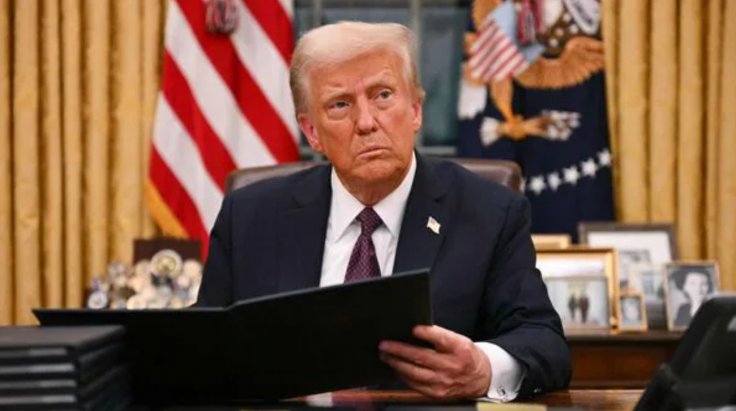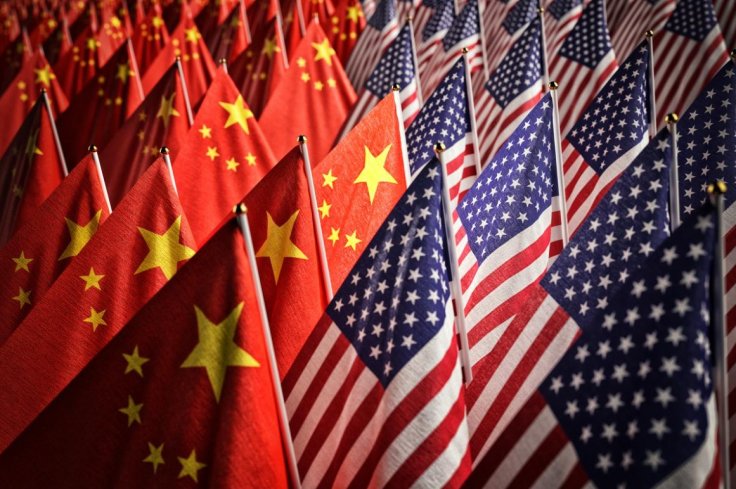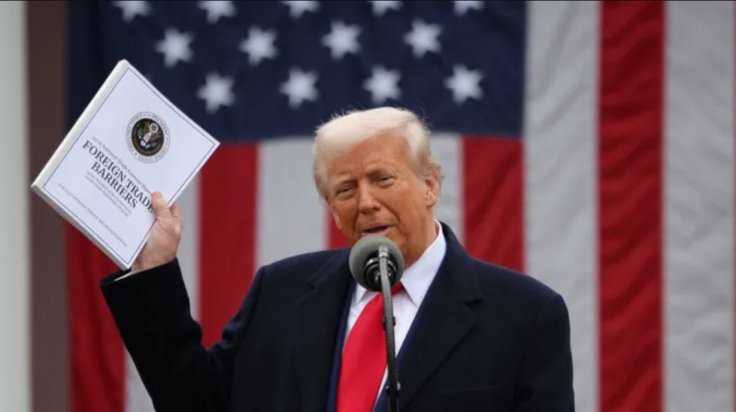U.S. stocks soared on Wednesday after President Trump revealed a 90-day halt on most of his proposed "reciprocal" tariffs — with the notable exception of China, which was slapped with a steep 125% tariff for what he described as a "lack of respect." The Dow Jones Industrial Average surged by 2,962.86 points, or 7.9%, recording its biggest single-day point gain ever.
It closed at 40,608.45 following Trump's announcement on Truth Social that he would hold off on imposing the high tariffs after receiving requests from over 75 nations seeking negotiations. The S&P 500 surged 9.5% to settle at 5,456.90, its biggest single day gain since 2008, while the Nasdaq jumped 12.2%.
Wall Street Rally on Trump's Tariff Pause

The Nasdaq settled at 17,124.97 points, notching its biggest single-day jump since 2001 and its second-best day ever. "I have authorized a 90 day PAUSE, and a substantially lowered Reciprocal Tariff during this period, of 10%, also effective immediately," Trump wrote on Truth Social, sending Wall Street soaring.
The rebound came after markets initially dropped on Wednesday morning as China announced it would impose an 84% retaliatory tariff on the U.S., sparking investor concern.

"I think the hope from the outset — for most of the business community — was that Trump's tariffs were a negotiating tactic, and that he would be willing to negotiate them down," Alan Sykes, senior fellow at the Stanford Institute for Economic Policy Research, told The Post.
"He's reversing course to a certain extent, while at the same time still listening to the China hawks," Sykes added.
Trump's announcement followed a sharp decline of roughly 5,000 points in the Dow over the past week, as investors grew anxious that his proposed "reciprocal" tariffs might fuel inflation again and potentially push the economy toward a recession.
Trump Influencing Markets
China's massive retaliatory tariff rattled investors early Wednesday, as the steep tax posed a serious threat to major domestic companies known for their "Made in the USA" goods and risked driving up costs throughout American supply chains.

"Based on the lack of respect that China has shown to the World's Markets, I am hereby raising the Tariff charged to China by the United States of America to 125%, effective immediately," Trump wrote in his post Wednesday afternoon.
"At some point, hopefully in the near future, China will realize that the days of ripping off the U.S.A., and other Countries, is no longer sustainable or acceptable."
Carol Schleif, chief market strategist at BMO Private Wealth, noted Wednesday morning that investors were "waiting in the wings for the faintest whiff of constructive news on tariffs," making the 90-day suspension a much-needed and well-received relief for the markets.
On Tuesday, the Dow surged over 1,400 points during a short-lived morning rally sparked by reports of ongoing trade talks with countries such as South Korea, Japan, Indonesia, and Vietnam.

However, those gains disappeared by the afternoon after the White House announced plans to hike tariffs on China for the third time this year, leading the Dow to end the day down by 320 points.









